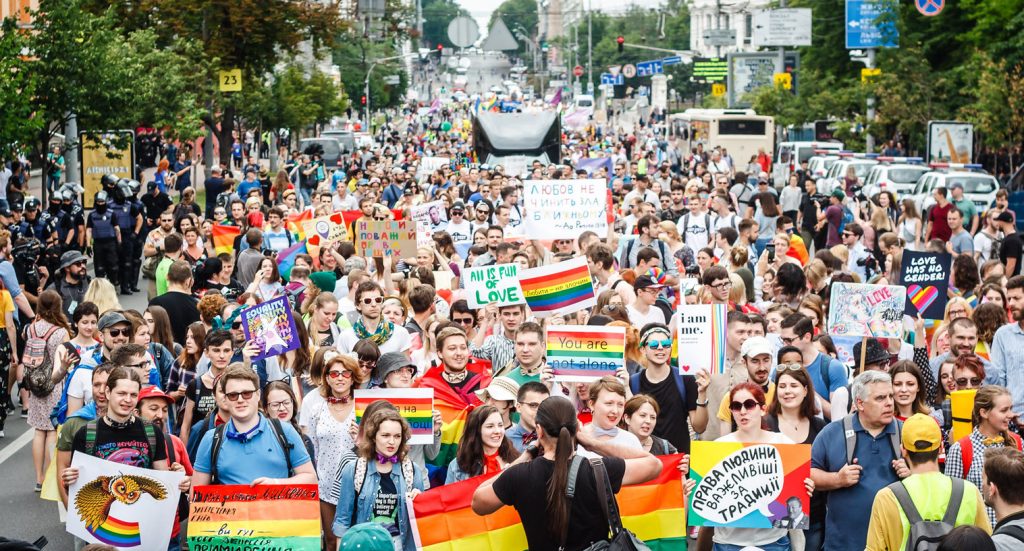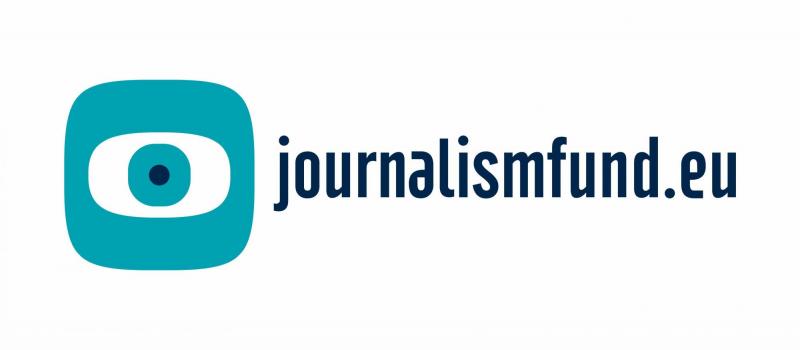This text is reserved for our members
Earlier than Russia invaded Ukraine, Sophia and Sasha lived in Odessa: Sophia was a psychology pupil, whereas Sasha labored sometimes in quick meals eating places. They arrived on the LGBTQIA+ shelter in Chernivtsi in early March, and Sophia’s mom and 11-year-old sister joined them quickly after. “It is not at all times been straightforward to reside collectively,” Sophia admits.
“Mom is homophobic. I defined to her that this was an LGBTQIA+ shelter and that I had nothing else to supply. When she arrived from Kramatorsk, she struggled for a very long time to settle in, and by no means talked to anybody. There have been numerous totally different individuals right here: gays, lesbians, trans individuals. Mum was in a little bit of a state, and took out her frustrations on me.”
“LGBTQIA+ individuals proceed to be seen as deviants, as a menace to ‘conventional’ households, seen as the idea of the Ukrainian nation. The identical chorus as in Russia,” says Olena Shevchenko, the director of Perception, an NGO that runs the Chernivtsi shelter, amongst others.
Ukraine abolished the legislation criminalising homosexuality after gaining independence in 1991, however tolerance in the direction of the LGBTQIA+ group has not improved. New circumstances of harassment, stigmatisation and violence in opposition to sexual minorities are nonetheless showing. Two years in the past, the NGO Nash Svit recorded 131 circumstances of discrimination and violence in opposition to LGBTQIA+ individuals. Between 2012 and 2013, it reported 50 such circumstances.
Police Safety
The organisers of the primary ever Ukrainian Satisfaction march discovered themselves pressured to cancel the occasion for worry of their security. A yr later, in 2013, 50 individuals marched by the streets of Kyiv below the safety of 1500 law enforcement officials. Whereas there was no violence, members needed to change their technique of transport a number of occasions to keep away from confrontations with counter-demonstrators. In February 2014, rainbow flags had been seen flying on the Euromaidan protests. An LGBTQIA+ march had taken place earlier that yr.
Obtain the most effective of European journalism straight to your inbox each Thursday
Following the Revolution of Dignity (as Euromaidan is usually recognized), LGBTQIA+ rights, that are a needed situation for European integration, lastly appeared on the Ukrainian authorities’s desk. In 2015, the Ukrainian parliament launched the primary legislative change within the historical past of unbiased Ukraine concerning LGBTQIA+ individuals: the Labour Code was amended to recognise the identical rights for all staff, no matter their sexual orientation or gender identification.
Nevertheless, these adjustments exist solely on paper. The fact is way much less rosy: with the post-Euromaidan nationalist upsurge, public attitudes in the direction of LGBTQIA+ individuals have deteriorated. Proper-wing political teams, leveraging the assist of a considerable chunk of the inhabitants as a consequence of their lively position within the revolution, started to advertise a imaginative and prescient of the Ukrainian nation based mostly on conventional, conservative values.

LGBTQIA+ individuals started to be offered as a menace to Ukrainian identification. The warfare within the Donbas and the annexation of Crimea has solely aggravated this development, as nationalist teams stoke hatred in the direction of representatives of minorities – anybody “exterior the norm”.
Militarisation of society
With the warfare comes a militarisation of the entire society, resulting in the picture of conventional gender roles being strengthened. “Males are anticipated to take up arms to defend their nation, whereas ladies are anticipated to go away the nation and search refuge with their youngsters. In a extremely pressurised society, anybody who deviates from this norm can anticipate to be excluded or discriminated in opposition to,” explains Maryna Shevtsova, an LGBTQIA+ rights researcher.
Struggle reinforces hatred. Olena Shevchenko has skilled this first-hand: in April, she was pepper-sprayed on the road in Lviv whereas unloading humanitarian assist packages. “The offenders have develop into extra aggressive,” she says. “They know they will not be prosecuted, everybody has gone to warfare.”
The invasion is a vital second for the LGBTQIA+ group: it’s a time to display our dedication, to develop into extra seen, in order that the scenario in 2014 will not be repeated.
Vera Chernihina, LGBTQIA+ activist
The LGBTQIA+ group is afraid of violence not solely from Ukrainians, but in addition, and particularly, from Russians. “Tales are circulating,” says Olena Shevchenko. “We all know that within the Donbass and Crimea LGBTQIA+ persons are being tortured, harassed and even murdered.”
For LGBTQIA+ activist Vera Chernihina, “a Russian occupation could be catastrophic for the motion. All of the work we’ve invested in combating for our rights could be for nothing. Earlier than the warfare, we labored with the police. I additionally met with European Union representatives many occasions. We may see that issues had been altering, that there have been increasingly individuals on the marches.”
Discriminations in opposition to trans ladies
In line with some consultants, the features made by Ukrainian NGOs for LGBTQIA+ rights are already largely misplaced. Final Could, at a convention on the Worldwide Day in opposition to Homophobia, Transphobia and Biphobia, Victor Madrigal-Borloz, a UN skilled on gender-based violence and discrimination, reported discrimination in opposition to transgender ladies in the course of the evacuation of invaded areas: “they weren’t allowed to board the trains.”
Maryna Shevtsova has additionally heard about these incidents, but stays hopeful. She believes that Ukrainian society can be extra tolerant as soon as the warfare is over. “Hundreds of thousands of Ukrainians are actually residing throughout Europe, involved with different cultures. I’m hopeful this may make some individuals extra open to variety.
A survey performed final Could by the NGO Nash Svit on Ukrainians’ attitudes in the direction of the LGBTQIA+ group already exhibits rising tolerance. In 2016, solely three % of respondents reported having a constructive perspective in the direction of LGBTQIA+ individuals; in 2022, the determine is sort of 13 %. The share of individuals declaring a damaging perspective in the direction of LGBTQIA+ individuals has fallen from 60 to 38 %.
As for the European Union, not sufficient has been demanded of the Ukrainian authorities, writes Maryna Shevtsova in a 2020 article entitled Combating “Gayropa”. The EU known as on the Ukrainian authorities to fight rising intolerance and homophobia and to punish hate crimes as early as 2015, however the Ukrainian felony code has nonetheless not been amended, as a result of affect of the church and the spiritual foyer. Furthermore, among the extra conservative parts of Volodymyr Zelensky’s pro-European centrists, Servant of the Individuals (SN), have additionally declared themselves hostile to LGBTQIA+ equality, and defend “conventional” household values.
Marriage equality?
In 2020, MPs Heorhiy Mazurashu and Olena Lys proposed a draft legislation “Combating Gay and Transgender Propaganda” that bears hanging similarities to the homophobic legislation handed in Russia in 2013. Human rights defenders, LGBTQIA+ activists and the Ukrainian parliament’s Human Rights Commissioner have condemned the doc – in contrast to President Zelensky. Certainly, to the nice disappointment of the LGBTQIA+ group, Zelensky has by no means taken a transparent stand in favour of their trigger.
Some activists, together with Olena Shevchenko, stay sceptical about current guarantees to introduce marriage equality. “Now we have been ready for a change within the legislation for years. We anticipated extra concrete motion from Zelensky. The president merely stated that everybody ought to have the identical rights, nothing extra. He could not give you something higher than this lamentable banality.”
Regardless of their difficulties, the LGBTQIA+ group continues to combat for his or her rights, in addition to their nation: in accordance with the survey performed in Could by Nash Svit, virtually 66 % of respondents assist the participation of LGBTQIA+ individuals within the defence of their nation in opposition to the Russian invasion.
LGBTQIA+ persons are already recognized to have fought within the Donbas, recollects Vera Chernihina. “There may be even a particular battalion of sexual minority fighters, in uniforms adorned with unicorn insignias. In 2019, they participated within the Kyiv delight march. The invasion is a vital second for the LGBTQIA+ group: it’s a time to display our dedication, to develop into extra seen, in order that the scenario in 2014 will not be repeated. Again then, individuals stated the one proper we had was to maintain quiet, as a result of we did not take part in Euromaidan. This isn’t true, although we weren’t seen. So individuals had good motive to harass us. The reasoning was: ‘we participated within the warfare, you did not, so you possibly can’t ask for extra rights, as a result of you aren’t actual Ukrainians’.”
👉Authentic article on Dwutygodnik
